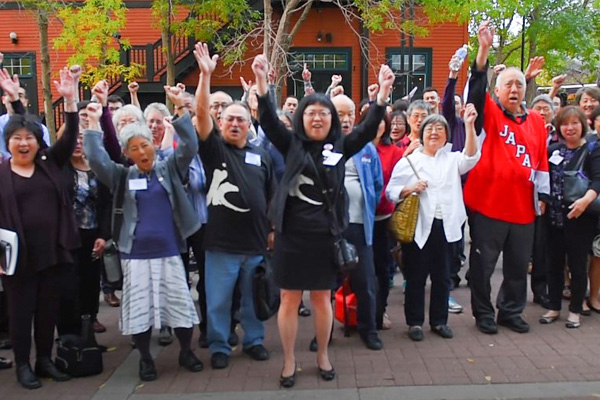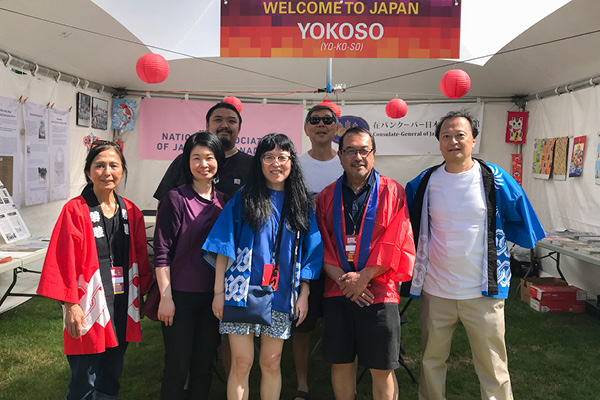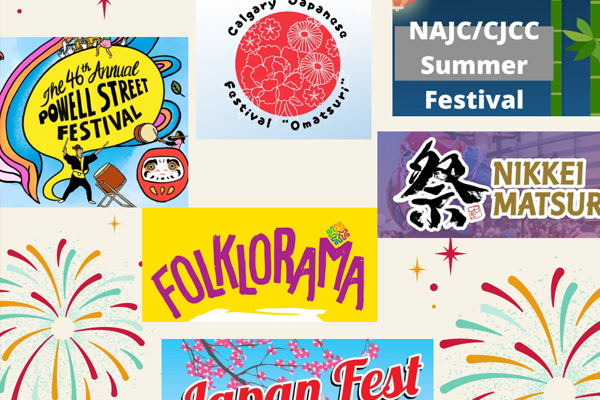President’s Report
 My mother, brother and I experienced our first Christmas and met a sailor dressed as Santa Claus aboard the Japanese ocean liner Hikawa Maru destined for Vancouver. We left Yokohama on December 1958—a journey of two weeks.
My mother, brother and I experienced our first Christmas and met a sailor dressed as Santa Claus aboard the Japanese ocean liner Hikawa Maru destined for Vancouver. We left Yokohama on December 1958—a journey of two weeks.
The Hikawa Maru (named after the Shrine in Saitama) was built in 1929 in Yokohama for the Nippon Yusen KK line and made its maiden voyage from Kobe to Seattle on May 13, 1930. I imagine that many Nisei are familiar with this ship since it plied the Pacific Ocean carrying Japanese immigrants to North America. It also carried Jewish refugees escaping Nazi Germany. During World War II, the Japanese military converted it into a hospital ship. In 1954, the boat was refitted and returned to carrying passengers until her termination from service in 1960. It began a new life in 2008 as a restaurant in Yokohama Bay.
As I prepared to leave Kagoshima, my well meaning grade two classmates at Taniyama Shogakko Elementary School gave me cultural advice on what awaited me in North America (of course none of them were speaking from experience). Some warned me about something called snow and how much it fell there—I had never seen snow before! Shockingly, someone added that Canadians ate raw vegetables. An unthinkable act since we used human waste to enrich the soil. Later in January—surrounded by snow—I recall that the first letter to my cousins was confirmation of this horrific Canadian dietary practice. I am sure that it was a source of much discussion with my former classmates. As for the skinny Japanese sailor dressed as Santa aboard the Hikawa Maru, I could not understand at the time why a man would dress in a red attire; fly through the air; break into a house through a chimney (no chimneys in Japanese homes) all in order to leave gifts for children. Why not use the front door, I thought.
Like the iconic Japanese song of immigrants, Watari Dori (Birds of Passage), we are all transients looking for a place to alight and to call home. Fortunately, I have returned to Japan numerous times, but the Japan of my youth has long disappeared and only the active volcano, Sakurajima and the spirits that dwell around the family o-tera (Buddhist temple); Taniyama Jinja (Shinto shrine) and the ancestral graves are my links to the country of my birth. We wander a thousand miles on our personal journey only to realize that we can never go back and all the answers to our quest were right there in our adopted country. Canada is my family’s home now and this is where our ashes will be buried. It is my personal hope that on this holiday season you will finally find your home.
Justice for UBC Students
On November 16, 2011, the University of British Columbia decided to honour 76 Japanese Canadian students with special degrees during the 2012 Spring Convocation. Next year marks the 70th anniversary of the Canadian Government’s imposition of the internment policy. As a result Nikkei students at UBC had their studies disrupted and were never able to complete their studies. The University will use the occasion of the 70th anniversary to educate future students about this dark chapter in Canadian history and will exhibit, from their holdings, historical records pertaining to this period. This campaign succeeded due to the leadership of Mary Kitagawa and her committee who mobilized the Canadian community into action. On behalf of the NAJC, I congratulate Mary for her unrelenting determination and for a job well done.
Read interview with Mary Kitagawa in The Bulletin
National Administrator
On December 5th, Sally Sweatman will assume the challenging task of NAJC National Administrator, taking over from Lucy Yamashita who has given us stellar service for many years. Sally comes to us with a wealth of community and fundraising experience and we look forward to her ideas as our organization moves towards future sustainability and more innovative programming. Lucy, as the current President of the Manitoba Japanese Canadian Cultural Centre, and a general member of the NAJC will be continue to be busy in her volunteer work. On behalf of the NEB and the member organizations, thank you Lucy for your unheralded years of service!
On behalf of the National Association of Japanese Canadians I wish you good health and happiness in the New Year.



